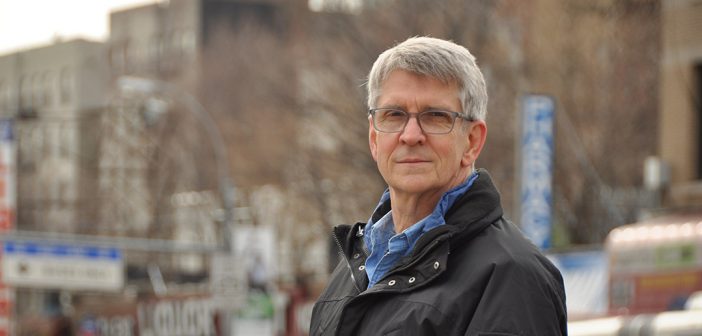This different view can be seen in Brooklyn and the Bronx, where congregations were listening to something more than authority figures’ dictates when they set out to make their communities better during the past five decades, argues Bradford Hinze, PhD, the Karl Rahner, SJ, Professor of Theology.
His book, Prophetic Obedience: Ecclesiology for a Dialogical Church (Orbis, 2016), advances a creative understanding of obedience by examining both local church life and grassroots democratic action.
“In the way obedience has traditionally been understood, you obey the person in authority, whether in your family, in the government, or in the church,” Hinze said. “Prophetic obedience calls for responding to the aspirations and laments of the community around me in my own situation.”
“Prophetic obedience is not blind obedience to higher-ups on the one hand, and it’s not following the mob on the other hand,” he said.
The book tells a story that began a half-century ago with the Second Vatican Council and its emphasis on dialogue rather than obedience to hierarchical authority. What emerged from the council was the idea of the church as the people of God, all of whom are empowered by the Holy Spirit to share in the prophetic office of Jesus Christ, Hinze said.
Around 1980, this idea became eclipsed in many sectors of the church by a re-emphasis on centralized authority around the pope and the Roman curia. But the idea of a dialogical church had taken hold in the Archdiocese of New York, where parish pastoral councils—not always supported by the archdiocese—branched out into local issues like housing, crime, and education, working with lay leaders and with people of other faiths and worldviews.
To illustrate, Hinze explores the founding of South Bronx People for Change at St. Athanasius Parish in the 1980s, as well as efforts by Jesuit scholastic Paul Brandt. In addition to teaching philosophy at Fordham, he organized local pastors to challenge the threat of encroaching fires from the South Bronx, which led to the formation of the Northwest Bronx Community and Clergy Coalition.
In the book, Hinze relates parishes’ grassroots engagement to the concept of prophetic obedience, or the act of heeding a “prophetic sense of the faith.” Through baptism, every Christian is invited to cultivate this prophetic sense as they discern how to live out the Gospel.
“A prophet emerges by heeding, hearing, and responding to the laments and the aspirations in the community and in the world,” Hinze said. “But prophets also need to be attentive to their own laments and their own aspirations, to exercise their own consciences, to discern, to take a stand.”
“It’s common … for Christians to emphasize that Jesus obeyed his heavenly Father,” Hinze said. “But Jesus also obeyed the voice of the Spirit that he heard in all of the people around him who were suffering and lamenting about how restricted their lives were, how marginalized they felt. Responding to these voices animated Jesus’ prophetic mission.”
Further, while typically God the Father is described as the authority and Jesus as the obedient son, scripture discloses that “the Father is obedient too,” Hinze said. “The Father heeds and hears and responds. We find God in the Hebrew scriptures heeding and hearing and responding to suffering humanity, but also to the wailing created world.”
The book’s themes echo some of the central convictions expressed by Pope Francis, which was pleasantly surprising for Hinze, who wrote it during the pontificate of Pope Benedict XVI.
“It was disorienting at first,” Hinze said. “You’re hearing a voice ‘out there’ that you’ve been hearing ‘in here’ for quite some time.”


